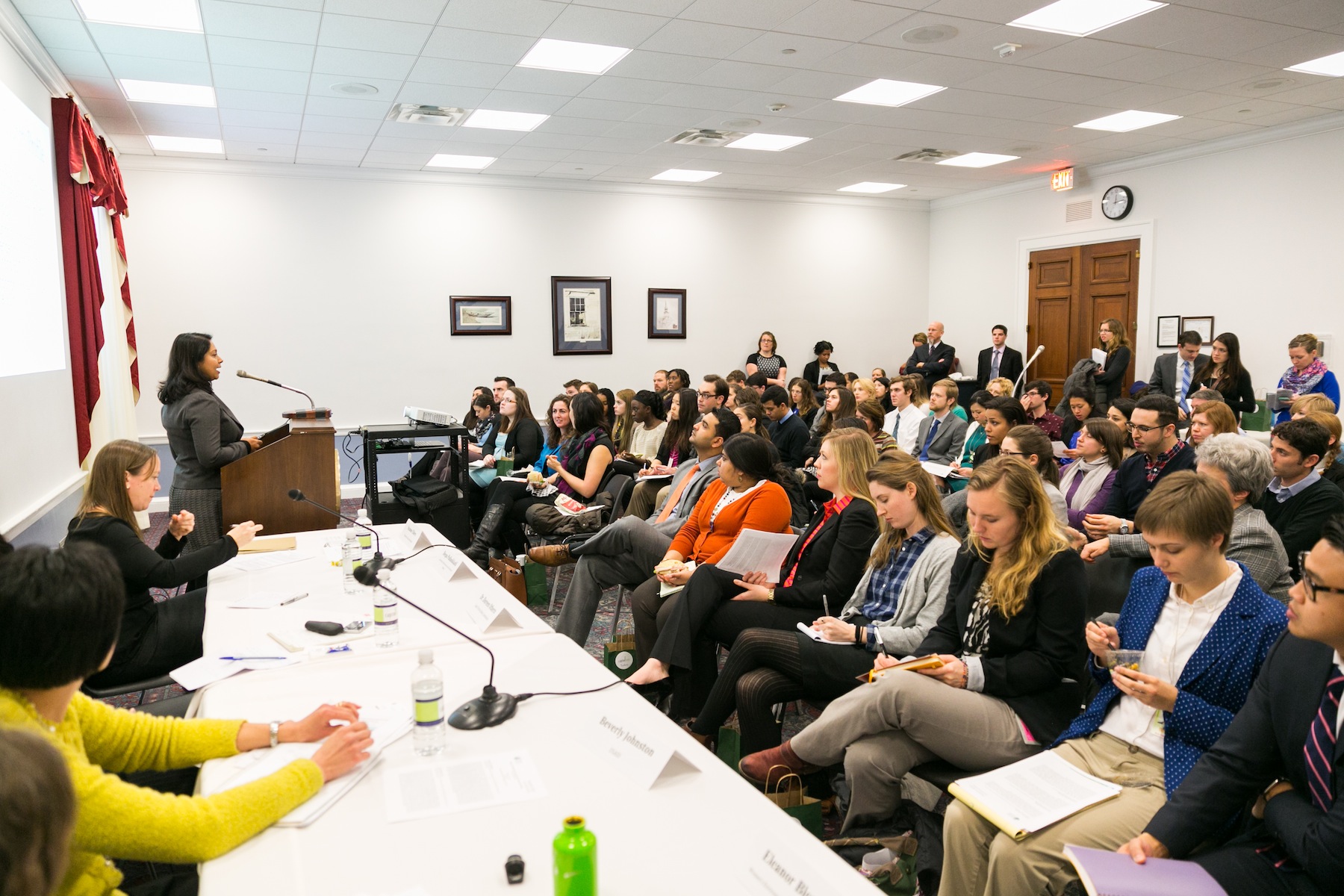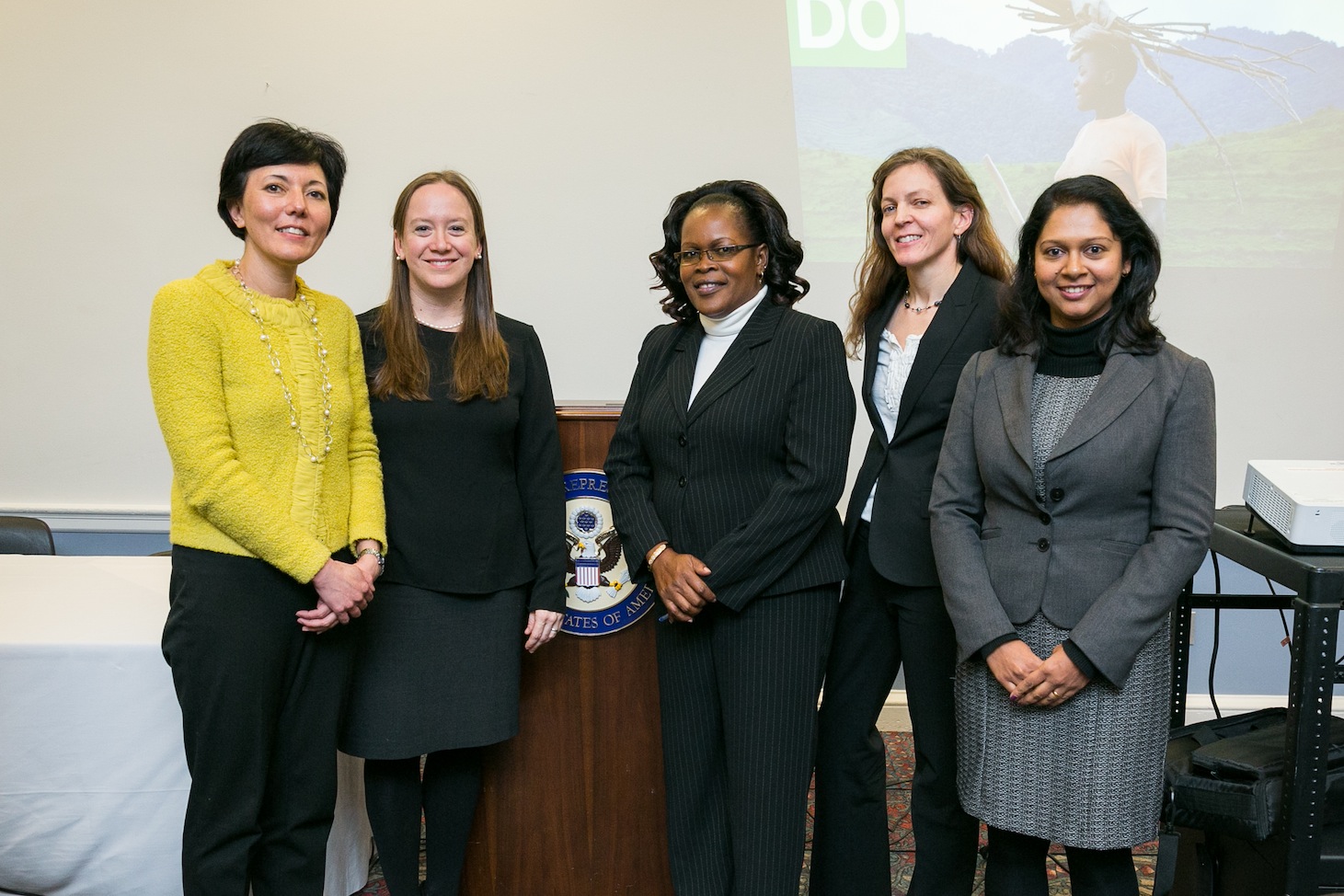WASHINGTON D.C. (February 24, 2014)— On Feb. 12th, 2014 Eleanor Blomstrom, Program Director at WEDO spent the afternoon in DC speaking on an informative Population, Health & Environment (PHE) panel. Here are her thoughts from the panel, ways forward and some WEDO perspective on the topic:
What was the main purpose of this event?
Eleanor: The Congressional Briefing was an awareness-raising event to on PHE, and its role in sustainable development, for congressional staffers and those working on related topics in the DC area. Sponsored by Population Action International (PAI), the Sierra Club, and the office of Representative Barbara Lee of California, the key crosscutting issues highlighted within the interlinked areas of PHE were climate change and gender equality.
Why was it important for WEDO to bring an international lens to the discussion?
Eleanor: 2014 is a year of great opportunity for sustainable development. Progress will not be possible without moving away from silos into multiple overlapping integrated styles of programming that look at co-benefits, shared goals and cross-ministry/department planning and monitoring.
Governments worldwide are discussing and framing the next sustainable development agenda, including a set of Sustainable Development Goals (SDGs) and the outcomes of the talks this year and next on the post-2015 sustainable development agenda will have profound implications for funding allocations and development priorities. It is also a period of critical development review processes; including the 20 year review of the International Conference on Population and Development’s (Cairo) Program of Action and the 20 year review of the Beijing Declaration and Platform for Action, as well as the annual Commission on the Status of Women, which is reviewing the MDGs in 2014.
In this moment, women’s organizations world-wide – from grassroots to international, small organizations to broad movements – are all working on numerous fronts. For example, members of the Women’s Major Group for sustainable development, are bringing attention to integration, and women’s human rights as a critical basis to success. WEDO has the opportunity to work closely with many of the organizations and support the amplification of their messages to a wide audience.
Deepa Pullanikatil of LEAD Malawi and Doreen Othero of the Lake Victoria Basin Commission brought a local and regional perspective to the event. Beverly Johnston of USAID spoke on their role in several PHE programs. By bringing an international lens to the discussion, WEDO was able to emphasize the links between the panelists and how the needs of women at the community level are addressed is key to successful international progress.
For advocates of women’s rights and environmental justice, WEDO sees PHE as a potential integrated programming frame addressing inter-linkages from a community perspective. This approach could open doors to address sexual and reproductive health rights, environmental justice, and discussions on key environmental issues. If a strong human rights framework is adopted, PHE approaches can also effectively and efficiently address poverty, environmental health impacts (e.g. from indoor air pollution, outdoor pollution, mining, agriculture, etc.), education, the sexual division of labor and the care economy.
What is the connection between the issues raised at the event (population, health and environment) and US influence on international policy? What role do you see the US having in Post2015 (or should have)?
Eleanor: The US has an important responsibility and role to play in implementing and funding sufficiently the interlinked PHE programs. The US has some evidence of successes –in terms of economic efficiency (important in times of resource scarcity) and social, gender and environmental benefits (crucial for wellbeing and sustainable development) – and can provide these examples to the international community to strengthen the move away from silos. In January, 2014, the US and a few other countries spoke out on linkages between climate change and gender equality; the US should amplify its progressive role in promoting these linkages to ensure that women are leading in developing, implementing and monitoring policies and projects.
While working on important social and environment links, the US can also influence international policy by promoting corporate accountability and fair, just trading systems that do not undo the gains made in its program support elsewhere.
How does WEDO hope to further engage with the US on these national/international connections?
Eleanor: WEDO will pursue numerous avenues to follow up with the US government; from coordinating further awareness-raising with congressional offices to audiences in DC and nationwide, to meeting with the US delegation for the SDG and post-2015 processes and providing research, case studies and rich experience to support US action and leadership.
Similarly, WEDO works with policymakers and international colleagues to ensure that climate change and gender equality are at the forefront of policy, programming – and funding – when integrating related issues of population, health and environment, human rights (women’s rights). Programming must be based on the needs, interests and requests of people in the community. Only then will the multiple benefits of an integrated approach – a sustainable development approach – have the individual, community and global benefits.
The US delegation made statements on gender equality linked to climate change, and on women’s sexual and reproductive health and rights. Now is the time to turn words to action to support women – and communities – worldwide in creating a sustainable, resilient world where are all have high level of well-being.
Photos courtesy of Yassine El-Mansouri




